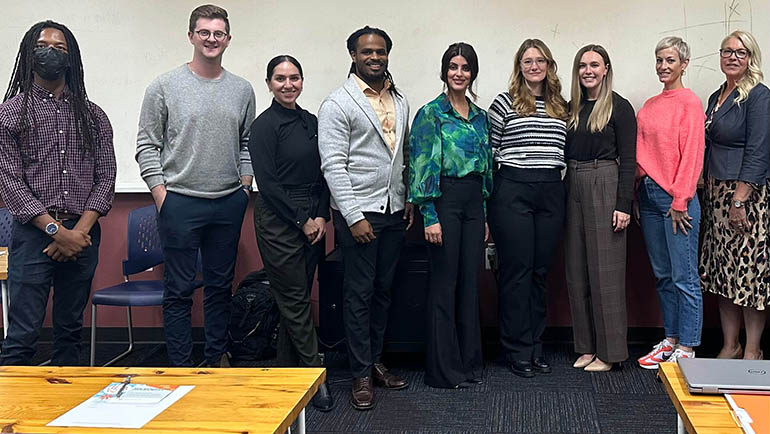
Wayne State University Law Professor Maya Watson figured that if she wanted to break barriers, she’d have to cross some lines.
Inspired by a multidisciplinary approach to battling the COVID-19 pandemic that she witnessed while teaching law classes in Chicago a few years ago, Watson, a native Detroiter, opted for a similar, silo-busting strategy in the fight for economic and social justice when
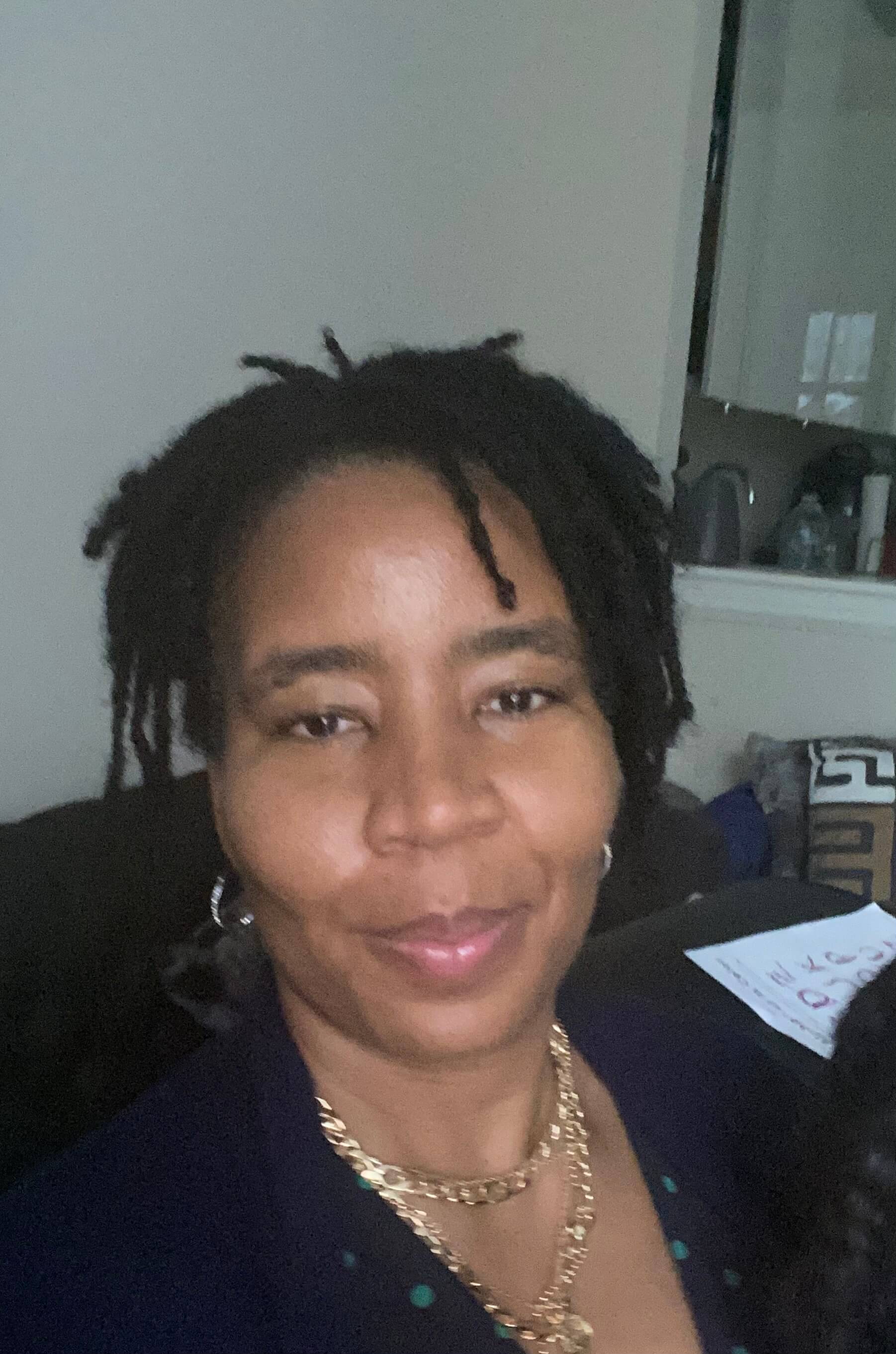
she became director of the Wayne State Law School’s Business and Community Law Clinic (BCLC) in 2022. Rather than rely solely on Wayne Law students to push the clinic’s mission — BCLC was created in 2007 to provide free legal services to select nonprofits, social enterprises and small businesses in Detroit — Watson decided to eschew the academic conventions that had limited participation in the program and seek additional help elsewhere.
She didn’t have to look far or for very long to find others willing to break out of their silos. Soon, students in both the School of Social Work and the Mike Ilitch School of Business were signing up to join the BCLC’s crusade. Today, as a result, the six-credit law clinic not only continues to serve as a shining example of WSU’s investment in social and economic change in Detroit, but in allowing law, social work and business students to work hand in hand, it also has become a testament to the strength of campus collaboration in community engagement.
“When COVID came on the scene,” recalled Watson, “I saw lawyers and law students working together with doctors and medical students, nurses, public health experts to address inequitable responses to the spread and impact of the virus. A lot of public health resources, initially, were concentrated in more affluent areas, while other neighborhoods were not shown the same level of support. I became a member of an interdisciplinary team that collaborated to offer free testing and resources in Black and brown Cook County areas. We worked together, learned from each other’s disciplines and from the community to address the perceived public health inequity.
“That’s when I became a believer of how valuable our advocacy can be when lawyers don’t just talk to other lawyers or social workers talk to other social workers. There is incredible value when you collaborate across disciplines, particularly when addressing the issues of marginalized groups of people. Wayne Law students who enroll in the BCLC each semester are brilliant, community centered, and eager to apply their legal skills and knowledge to addressing clients’ needs. Collaborating with Professor Marijo Upshaw and Dr. Lauren Scott has been an honor as we work to incorporate incredibly bright and experienced Wayne State M.S.W. students and business students into the course. This collaboration has allowed the clinic to be more impactful, the students to efficiently practice at the top of their licenses, and Detroit-based clients to obtain more creative and inclusive solutions.”
Building partnership
Leaders from both the Ilitch School and the School of Social Work eagerly agreed with Watson and, in 2023, began carving out roles for a handful of their students, who would supplement the work done by the law students, who provide services such as drafting bylaws and reviewing purchase agreements and other documents for BCLC clients. Guided by Scott, the director of MISB’s Multicultural Professional Readiness Education Program (MPREP), business students began working with clients to identify areas of improvement, develop strategic plans and consult in areas such as management, finance and marketing. Similarly, Upshaw, a faculty member assigned to both Ilitch School and the School of Social Work, helped incorporate social work students into the clinic’s efforts by assigning them tasks such as connecting clients to community resources, tracking down potential funding sources and helping nonprofits build capacity.
“When Professor Watson came and told me she had this vision for creating more holistic transactional law clinic, I was sold,” said Upshaw.
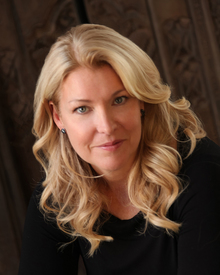
“We work really well together. I think there’s a lot of synergy and a lot of similarities between law and social work. It might not be apparent why social workers would be placed in a business and entrepreneurship clinic, but my specialty area is the intersection of social work and business and entrepreneurship. We call it social entrepreneurship. So when she reached out, immediately it was like, ‘Yes, we need social work in!’ Because a lot of the entrepreneurs, whether they’re commercial entrepreneurs or social entrepreneurs that the clinic represents, they have barriers to the development of their particular venture. That could be lack of access to capital, which we know is a historic structural barrier. It could be an individual barrier. It could be, for a lot of us who are women entrepreneurs, that we often don’t reach out to formalized business development services because we don’t even honestly see ourselves as entrepreneurs. So, we need encouragement.”
Meanwhile, Scott listed several immediate benefits that she believes students receive by participating in the program, including the chance to solve problems holistically, exposure to perspectives that differ from their own, the opportunity to network, developing of skills outside their chosen field of study, and the opportunity to witness the real-world application of theoretical concepts.
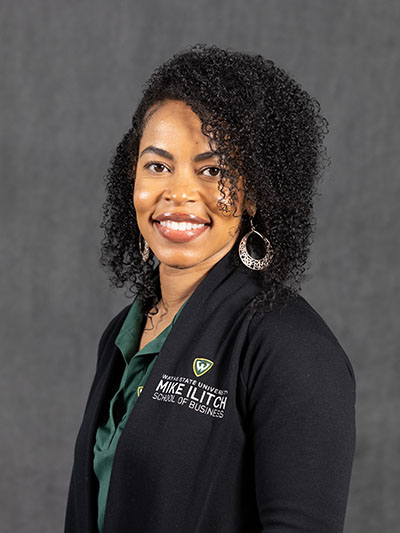
“By engaging with local entrepreneurs, students can tackle authentic problems faced by businesses in their community, applying theoretical knowledge to practical scenarios and gaining valuable experience that prepares them for their future careers,” explained Scott.
As the collaboration enters its third semester, the clinic’s team currently includes the eight law students enrolled in Watson’s course as well as two students from the Ilitch School and one pursing her master of social work. (Watson, who earned her law degree from Wayne State, also oversees an advanced BCLC course that allows previous students to return to work for the clinic.) The students are divided into teams assigned to tackle assorted work for the handful of organizations chosen this semester to receive their services. Clients are selected based on need and mission.
Outreach and uplift
For the Perry Outreach Center in southwest Detroit, the students’ work may represent the ’last hope for keeping its doors open. Originally started as a food pantry serving the Saints Andrew and Benedict parish in the community, the Perry Center has evolved over the years to offer not just food but also clothing, employment counseling, and music and computer classes. Tracey Patterson, president of the center, said that a drastic drop in the number of priests and parishioners is forcing the parish to close but that she and director Randall Mosley hope to keep the center operating after the closure.
“Everyone is on board with making sure the center doesn’t die,” Patterson said. “So, I looked around for legal help to create a 501(c)(3), which we think will allow us to stay open. Someone told us about the Wayne State law clinic, so I applied, and we were accepted.”
Not long after that, she said, the students went to work. “They helped us go over and submit articles of incorporation. They helped us create a supervisory board and an orientation program for the board. They helped us apply for the 501(c)(3). They even helped us create a backup plan – to find a fiscal sponsor – just in case we don’t get the 501(c)(3). Their work was crucial, and the stakes are high. Without them, our doors would certainly be closing this July.”
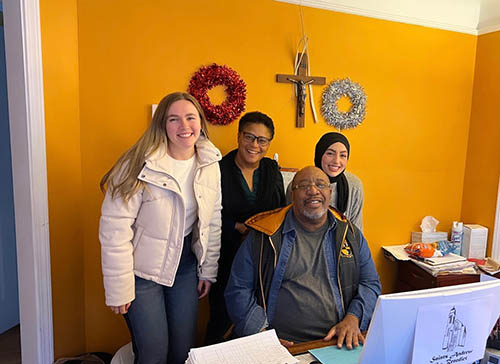
The center isn’t safe yet, as its 501(c)(3) application will be submitted in the next several days and undergo IRS review. Patterson said she has no idea how long it’ll take to learn whether they’ll be granted nonprofit status, but in the meantime, they are also working on the BCLC’s backup plan.
“For us and probably for others who are under resourced, the clinic was a lifeline,” said Patterson. “We would not be able to continue to exist without their legal help to make us an independent organization. They also brought other resources to us — there was a business student and a social worker who worked with us — that have been helpful. I cannot thank them enough. They have been so patient and wonderful to work with.”
While Watson was reluctant to reveal other names of the clinic’s current clients because of ethical concerns, she did say that, along with the Perry Outreach Center, they include a burgeoning restaurateur and a tech development venture.
Practical experience
Meanwhile, student participants are quick to praise the program for bringing them together and affording them a hands-on chance to promote positive change in the city, particularly among under-resourced groups.
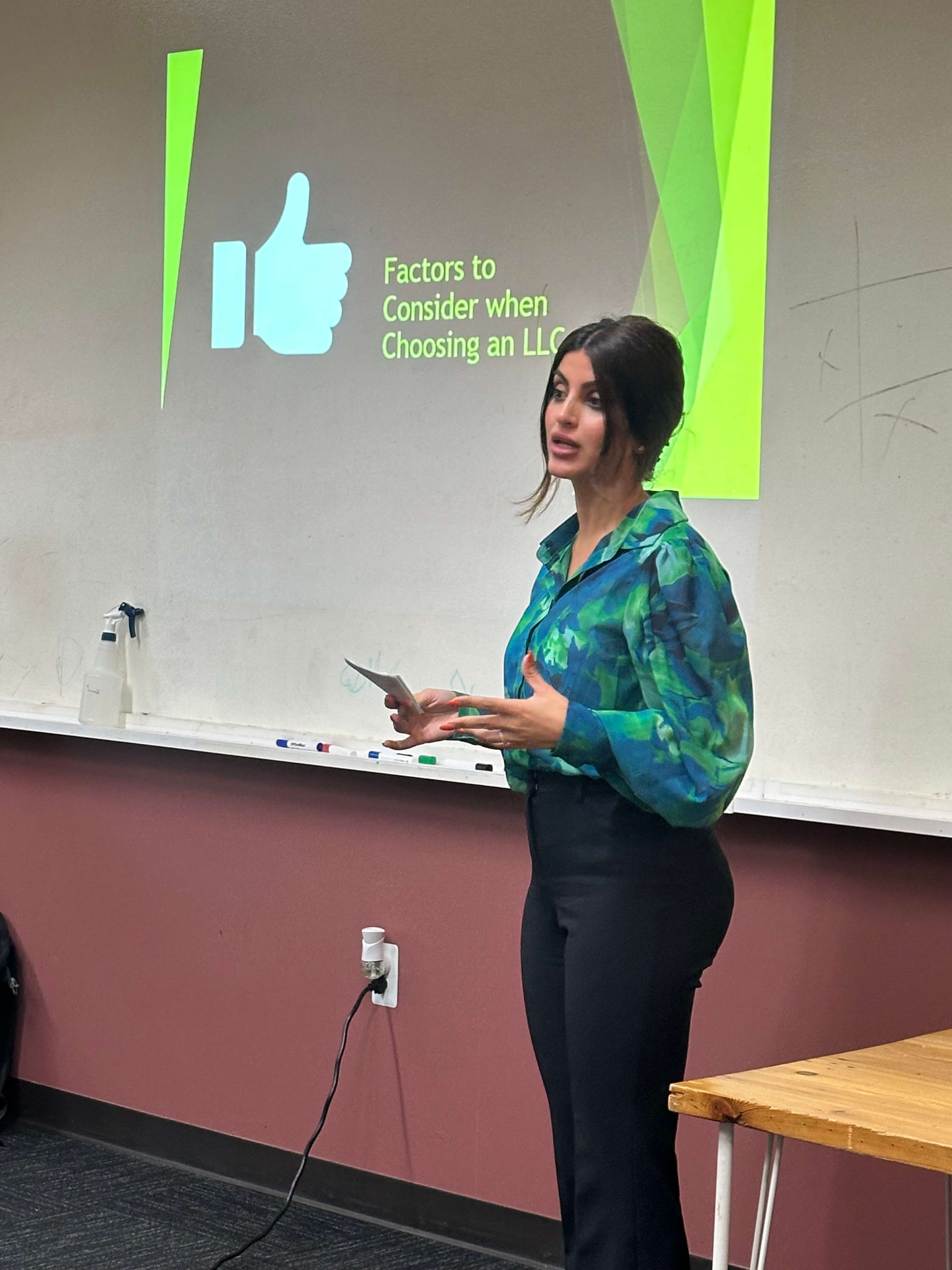
Moreover, the approach aligns with Wayne State’s recently announced College to Career initiative, which seeks to provide each student with experiential learning opportunities and allows them to encounter the world, gain deeper insights and new perspectives, and ready themselves for successful careers.
“A lot of law school is pretty much reading and analyzing on your own and is not a very hands-on experience,” said Maria Gedris, a second-year law student who signed up for the advanced BCLC course to continue working with the Perry Center after she’d grown attached to the client during her first semester in the clinic. “With the clinic, you get the opportunity to challenge yourself and test your skills. It’s the best way to see if you’ll enjoy working as a lawyer because it’s the sort of work that you’ll be doing after you graduate and take the bar. It also helped me see the light at the end of the tunnel. Having this hands-on experience reminds me that there’s something good at the end of this journey through law school.”
Julia Stewart, who is working toward her M.S.W., recalled watching a client’s confidence grow as her team moved through its work.
“Over the course of several months of working with one particular BCLC client alongside the student legal team, I was able to watch the client’s’ anxiety and stress turn into excitement and empowerment,” said Stewart. “By approaching this client and their venture holistically, they were able to understand how the legal, business and social work pieces fit together to create strong scaffolding for their venture to build on. This clinic is beyond valuable to the faculty, staff, students and clients alike, as well as the community as a whole. We stand together to elevate community members so that our community can rise up.”
MPREP participant and native Detroiter Maya Moses, a sophomore in the Ilitch School who studies information systems management, credited Scott for directing her to BCLC and said she was ready to accept any challenge to create more equitable business and social conditions in her hometown. “Detroit is filled with so many organizations that just want to give back,” she noted. “They aren’t looking for financial gain; they’re looking to better our community. Detroiters deserve access to people who can give them the tools to protect their organizations. There are so many legal measures that go into establishing a future to an organization. Ms. Watson and Ms. Upshaw created an environment for us to help provide that protection for these organizations.”
Ahmed Doudi, a finance major from Dearborn who has consulted and developed sustainability models for clients, hailed the clinic for helping “create a better culture and community for the metro Detroit area.”
Looking toward the future
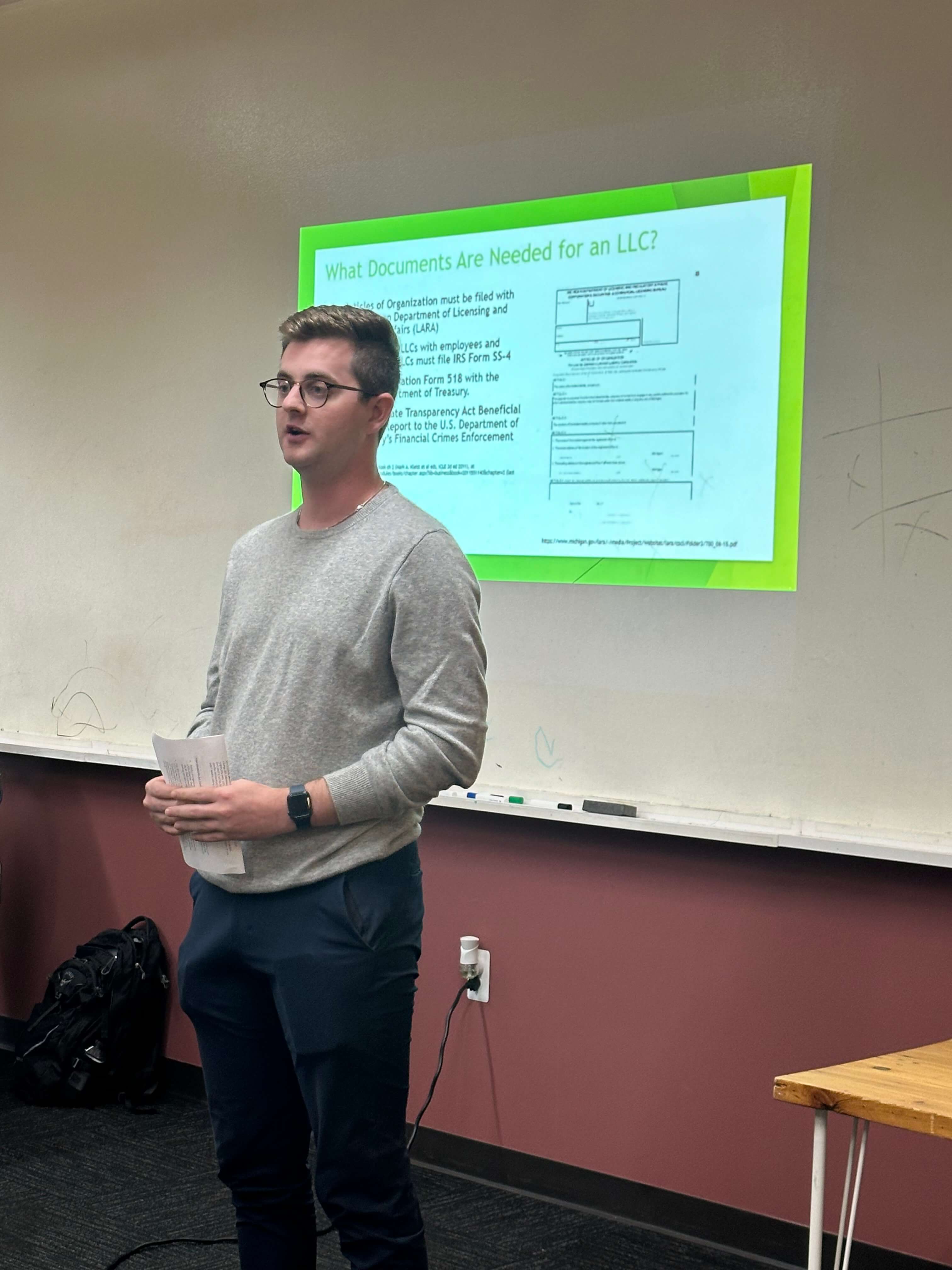
While Maya Watson said she’s pleased with the current progress of the clinic, she also said that she envisions a future in which the work at the clinic — which doesn’t have the supervisory capacity to enroll more than eight law students each semester — leads to the creation of an actual entrepreneurship center where clients can be served. “Having a center for entrepreneurship that still encompasses this interdisciplinary component would allow us to do more work in the Detroit community with breaking down structural barriers to entrepreneurship,” she said.
For now, though, she and the students are doing all they can to help clients grow and increase access to funding, customers and other tools for development. Just as importantly, said Watson, they are doing it together the way she intended from the time she returned to her alma mater.

“When I came back to Wayne Law to teach, I was really a proponent of interdisciplinary practice because I didn’t learn until late that lawyers benefit from working with social workers and businesspeople,” she said. “In addressing the legal and non-legal needs of historically underrepresented small businesses and nonprofits, that may not have sufficient access to capital or other opportunities, then we should be working across disciplines to tackle the need.”